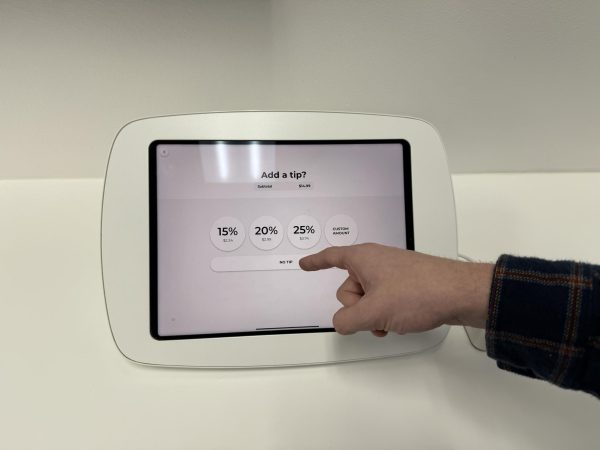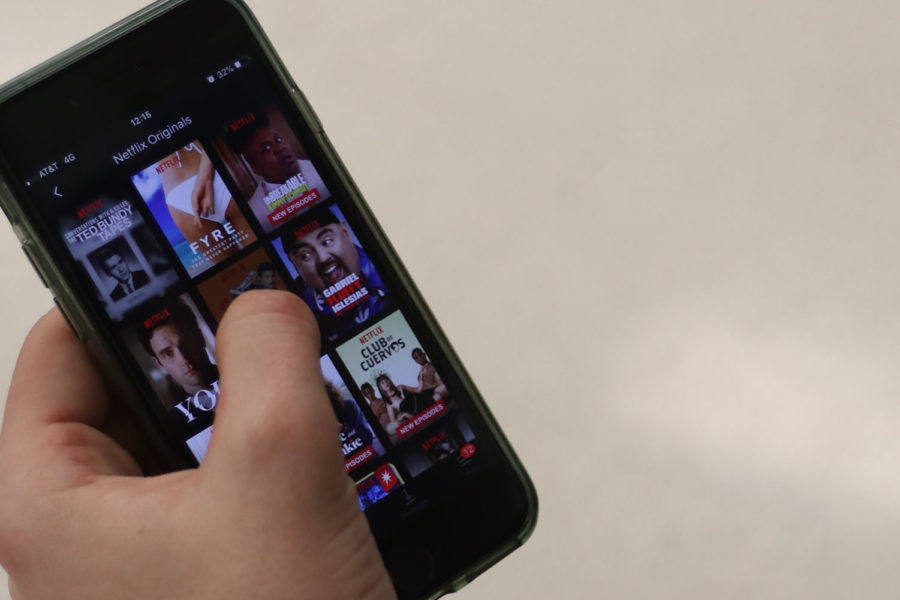Opinion: Netflix- The Monopoly That Has Already Won
Media by Rene Moore
The Netflix original film “Roma,” was recently revealed to be one of the eight nominees for the Academy Award for Best Picture. This film, which made approximately $2.8 million off the platform, tied with “The Favourite” for most nominated film in the 2019 Oscars, receiving 10 nominations. This accomplishment by Netflix further presents the success of Netflix original productions and the worrying control that Netflix has over the industry.
Starting with the creation of the “House of Cards” series in 2013 to the recent film “Bird Box,” Netflix originals have become a widely popular staple of pop culture. Not only did the concept of “binge watching” originate from the streaming platform, but its 2018 thriller “Bird Box” resulted in the film’s very own meme community on social media. Following the release of the film, an influx of humorous captioned photos surfaced on the internet, alongside a phenomenon known as the “Bird Box challenge.” The convenience of Netflix has been able to penetrate everyday life, and clearly its original productions have been no exception to its influence.
Long has it been observed that mainstream, well-liked shows are available on Netflix one night and mysteriously disappear the next. Users who once exclusively used the streaming service to watch “How I Met Your Mother,” “30 Rock,” or “Mean Girls,” now find themselves forced to settle for Netflix originals. This is the secret of Netflix: entice subscribers with access to acclaimed cable shows or movies, allow your expensive licensing contracts to expire, and keep your subscribers from leaving by flooding the platform with Netflix originals.
The true reason why Netflix is creating originals is because having the rights to your favorite cable show can be expensive: in December Netflix paid $100 million to Warner Media for the right to stream “Friends” for another year. While watching these shows may be the reason why you pay $7.99 a month for the service, from a business perspective, Netflix would undoubtedly want to phase out its reliance on other production companies.
As the largest streamer of its kind, with an astounding 118 million subscriber accounts globally, its influence on the entertainment industry cannot be understated. According to an American Customer Satisfaction Index (ACSI) report, the approval rating of cable television has reached an all time low due to the rise of online streamers. Cable networks have found it increasingly difficult to outcompete Netflix’s model of zero advertisements on the platform.
Netflix’s success among modern audiences appears immune to outside factors: the content or price doesn’t seem to affect the popularity of the platform. Shows are removed and subscription prices are scheduled to hike, and yet the $3.7 billion company reports record growth. Other companies are trying to get on the streaming entertainment trend, such as Disney announcing the release of Disney+, but this nomination simply goes on to prove Netflix has become the king of the industry.
After this nomination, Netflix now has more incentive than ever to rely on its originals for the bulk of the platform’s content. If two things are for certain, expect another upcoming season of “Stranger Things” and maybe binge “The Office” before it’s too late.
Your donation will support the student journalists of Marquette High School. Your contribution will allow us to purchase equipment and cover our annual website hosting costs. You may become a PATRON by making a donation at one of these levels: White/$30, Green/$50, Blue/$100. Patron names will be published in the print newsmagazine, on the website and once per quarter on our social media accounts.

Michael Schmitz, senior, is a foreign correspondent for the Messenger. During his time in Israel, he will utilize his background in political analysis...

Rene Moore, junior, is a staff reporter for the Messenger. She is involved in STUCO, Key Club, and Track and Field. She enjoys studying psychology...








Alex McAteer • Apr 25, 2019 at 4:30 PM
This completely ignores other streaming services. The truth, which happens to be far scarier, is that streaming services will end up being the new studios of the entertainment business. Instead of paying all your money to charter you’re paying 10 different streaming services $10 a month. This becomes obvious when you consider Hulu originals and Disney pulling all of their content off of other streaming services in favor of their own, Disney + launching this winter.